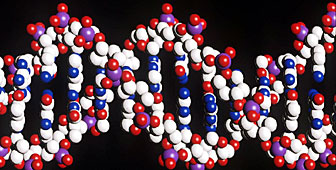Experts reject gene patenting

An influential committee of experts says the controversial patenting of genes should not be permitted.
The Swiss Ethics Committee on Non-human Gene Technology was stating its case ahead of a proposed revision of the patenting law.
It took the view that genes, even if modified, were essentially “discoveries” and not inventions, and that it was therefore questionable as to whether someone could claim ownership of them.
The committee also questioned whether the existing system of patenting – for non-living objects and products – could be applied to living animals and plants.
“We have a consensus in the committee that we are against patents on genes because genes are not inventions but discoveries,” Dr Andrea Arz de Falco, president of the committee, told swissinfo.
The committee also argued that, from an ethical point of view, it was difficult to grant patents for genes. Members said genes belonged to humanity as a whole and should not become the property of one individual.
Huge financial rewards
Arz de Falco also raised concerns that the Third World, where vast amounts of genetic information are being gathered, would miss out on the huge financial rewards that the biotechnology and gene engineering explosion is creating.
She insisted that the committee was not opposed to investment in scientific research being rewarded. However, she warned that science, as a whole, could suffer if knowledge was held in the hands of a few.
“One of the main concerns should be that science, public science should be as free as possible,” said Arz de Falco. “They should not be limited by the patent system and I think researchers should have free access to the knowledge in the domain of genes, especially I think in the medical research.”
Committee member Professor Beat Sitter added that the issue of patenting living genes was an ethically complex one and should be taken back to the drawing board.
Taboo subject
He argued that it was impossible to differentiate between human beings – a taboo subject when it comes to gene patenting – and plants and animals.
“When we follow the theory of justice, as has been established for a long time, you would have to say this is inequality, and we have to treat all these beings – be they human or non-human – in the same way,” he said.
“We are not considering ourselves or our fellow beings they way they ought to be in this world. We’re just taking them and then ourselves as resource material and this is evidently wrong.”
The public consultation period on a revision of the law is due to end at the end of April. The Committee said it would be making its submission to Parliament within the next few weeks.
by Adam Beaumont

In compliance with the JTI standards
More: SWI swissinfo.ch certified by the Journalism Trust Initiative
You can find an overview of ongoing debates with our journalists here . Please join us!
If you want to start a conversation about a topic raised in this article or want to report factual errors, email us at english@swissinfo.ch.